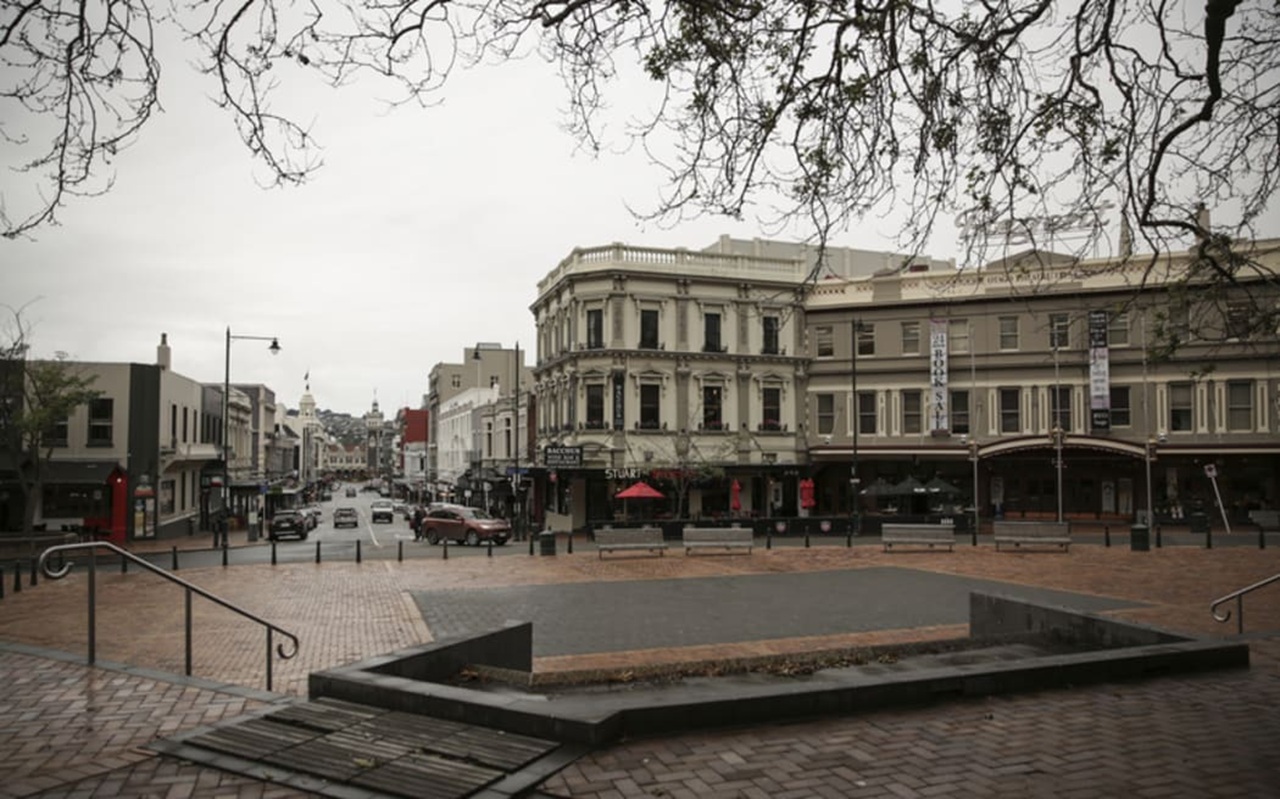New earthquake building rules pose big challenge for Dunedin, developer says
RNZ
29 September 2025, 11:55 PM
 The Octagon in Dunedin. Photo: Rebekah Parsons-King via RNZ
The Octagon in Dunedin. Photo: Rebekah Parsons-King via RNZBy RNZ Morning Report
A Dunedin property developer says unlike other parts of the country, the city faces bigger challenges following the government's overhaul of the earthquake-prone building system.
Coastal Otago, including Dunedin, is shifting from a low to medium seismic zone under the new rules.
The new Earthquake Prone Building system will mean unreinforced masonry buildings with unsecured facades and walls facing public areas or above neighbouring properties will be deemed earthquake prone.
However, those under three storeys and in towns with under 10,000 people would no longer need strengthening, remediation or warning notices - and could be removed from the earthquake-prone register after having the facade secured.
Listen here on Morning Report: Dunedin moves from low to medium seismic risk
Russell Lund, who is running for council, told Morning Report many of the city's stone heritage buildings in the CBD are under-utilised.
He said the cost of now converting these buildings into apartments, would be 'prohibitively expensive' due to the reinforcing requirements.
Dunedin's biggest concentration of heritage buildings was in its CBD and this posed a major challenge, he said.
Most of Dunedin's heritage buildings in the CBD were built to the street and the boundary, which under the new regime meant they would be considered earthquake prone, he said.
"The issue is that we've got to find alternative uses for the buildings, you know there's vast tracts of buildings that are either empty or under-utilised.
"When you change the use, when you've got an old building and you want to say put apartments in an upper floor, then the Building Act deems that 'a change of use' and you have to bring the building up to new building standards in all respects and it's prohibitively expensive."
The loosening of rules in the government regulations would not apply to 'change of use' in buildings, he said.
Actuaries for insurance companies would be the most important people in this change, he said.
"What this move has done is move the risk of earthquake to the insurers, previously there was a statutory obligation to strengthen the buildings."
Insurance companies would not be willing to take the risk of insuring a quake prone building if it was not going to be strengthened, he said.
"They'll think there is a statistically significant you know risk that that building could turn to rubble at some point and they'll be on the hook for it," he said.
"From my point of view, I think it would be very short-sighted to say 'well I'm going to spend a whole bunch of money converting a building' then I really need to be doing the strengthening because it could only take one policy change from the insurers to say 'you know actually New Zealand is too higher risk'."
That was what had happened in California where it was very very difficult to get earthquake and fire insurance and the state had had to step in as an insurer of last resort, he said.
The rule changes were great news for Auckland, Northland and small towns, he said.
If Dunedin had been left as a low risk quake area it would have changed the game there too, but that was not the case, he said.
"I can name, I can rattle off half a dozen quite significant heritage development schemes [in Dunedin] that just can't get started, they can't get off the ground because the numbers don't work because of various reasons."
'It's a sensible thing, it's good news' - Auckland mayor
Auckland, along with Northland and the Chatham Islands, will be removed from the system entirely.
Listen here on Morning Report: Some regions exempt from new earthquake building rules
Auckland mayor Wayne Brown said it was a win for the city and the region, and was a step towards more affordable housing.
"Many older office buildings in Auckland Central are ripe for redevelopment as residential property. However, unnecessary seismic upgrades have pushed up construction costs, making these developments unattractive for finance companies and investors," he said.
Brown said he had been pushing for the change for some time and he was pleased the changes had been made.
"It's been lumped with a whole lot of unnecessary costs during tough economic times and so this is a win for Auckland really and Northland."
Some apartment owners had been financially ruined by the need for earthquake upgrades, he said.
"So they're sort of going broke to protect themselves from something that won't happen."
The decision would work well for reintensification plans, he said.
"We've got a lot of older buildings in the Auckland central area that are ripe for redevelopment as residential property but the unnecessary seismic upgrade costs have made these developments unattractive for finance companies and developers," he said.
"It's a sensible thing, it's good news."
The risk of a major earthquake in Auckland was probably less than the risk of a volcanic eruption, he said.
"If you look around Auckland ... you can see 40 volcanoes and the oldest one is 40,000 years and the newest one Rangitoto is under 1000 years so we're probably due for a volcano at some stage.
"But if you look through the geology of our cliffs around the harbour, there's no evidence there there's been an earthquake for the last 120,000 years, so it was just more Wellington exporting its problems to Auckland and I'm glad it's been fixed." - RNZ

WHAT'S ON GUIDE
GENERAL & PROFESSIONAL SERVICES






